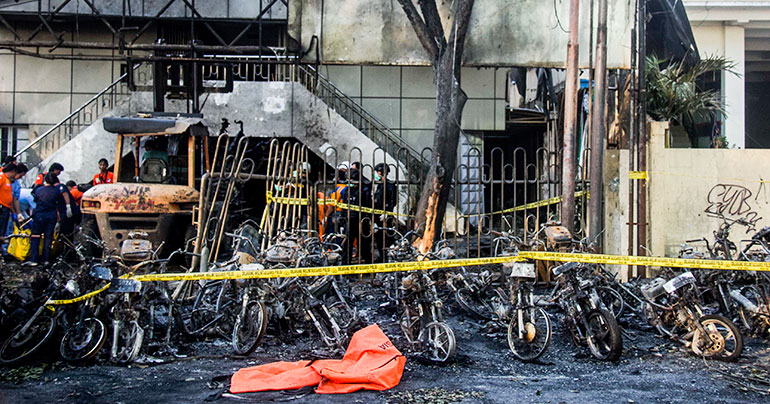Suicide bombings of churches and a police headquarters in Surabaya in May were carried out by entire families that included young children. It’s not just bombing victims but also the terrorists themselves who are prey for “an ideology that is abused and wrongly interpreted”, says academic Haula Noor

In 2016, Indonesia saw its first Isis-linked female terrorists, and, in May, the country became victim to families carrying out terrorist bombings. Is this the start of a new terror trend?
The use of women and kids in suicide bombing (or amaliyah) is new in terrorism discussion, especially to include kids in bombing actions. Isis always refers to women jihadists as a female lion and kids as a cub. So why women and kids? First, women are sensational. The prevailing perception of women is weak and soft, so being a soldier has an astonishing meaning. Second, Isis has the idea of a family Hegira (a migration or journey by a whole family)… I cannot say that Isis is actively persuading families to do terror together, but the terror in Surabaya was their propaganda to motivate other families who are supporters of Isis and also to show them that to do terror together with the families is legitimate to their belief.
Isn’t suicide bombing by children and families taboo in Islam? It would seem to be bad publicity even for the jihadist movement.
It is a taboo not only religiously but morally and culturally. The problem is these extreme people believe that bringing their children and family to do jihad is one of their parental responsibilities toward God [alongside] their rational parental choices… Instead of leaving children without assuring who will maintain their ideology, family choose to do the amaliyah together and believe they will be together again in heaven. For people who have a similar extreme belief, this action could be motivation for them.
You’ve written that people are often recruited online into jihad. What can be done about this phenomenon?
First, we should counter terrorist narratives online. Invite disengaged jihadists to tell their stories through online media. Ask them to tell their childhood story, how they found optimism in their disengagement decision… and how Islam urges Muslims to view the world in a positive way. Second, we should educate parents and children who are not radicalised yet that the threat of terrorism is real. Educate them that terrorism attacks anyone who is vulnerable, like kids exposed too much to online media. So, parents will realise that a threat they should be aware of and might be faced by their children in the future is the threat of terrorism, not just drug abuse or crime.
[Everyone] is the victim of terrorism. It is not only people who are injured or die by the act, but also the terrorists as well. They are the victims of an ideology that is abused and wrongly interpreted by irresponsible actors. Therefore, terrorism is not a problem of one region or community, but it is a problem for all of us.
Haula Noor is a third-year PhD candidate at Australian National University who interviewed the families of over 30 jihadists in Indonesia in 2016 as part of her research into terror and families
This article was published in the July 2018 edition of Southeast Asia Globe magazine. For full access, subscribe here.

